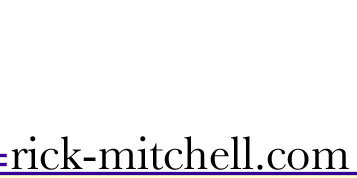EU Report Recommends Rigorous Inspections Throughout Food Chain
By Rick Mitchell
A European Parliament committee adopted in November a report laying out a plan to streamline and strengthen existing European Union and member-state legislation on the safety of the food chain, adding sharpened enforcement teeth, including criminal penalties and fines.
The report sets out a regulatory framework that would revise several existing laws covering the safety of food, animal feed and labeling. It would add rigorous inspections to make sure the rules are followed, from the farm to the dinner table. These would include inspections of imports from countries outside the European Union.
The report’s adoption, by Parliament's committee on the environment, public health and consumer protection capped a month in which the European Commission proposed regulations on food fortifiers and high-tech packaging, adding more fabric to the legislative umbrella it sketched out in its white paper on food safety in 2000.
That document was aimed at restoring consumer confidence in food-quality and health standards after a run of tainted-food scandals -- dioxin in Belgium, listeria outbreaks in France, and mad cow in the UK -- rattled Europe.
The committee adopted the first-reading report in a 30-to-22 vote, with one abstention. The closeness of the vote hints at the disagreements among member states, consumer organizations and industry that have dragged out the process of enacting food legislation. It also indicates that more work lies ahead to reconcile differences.
Several parliament members voted against the report on the grounds that they want the commission's proposals toughened up. They also criticized the absence of a legal justification for criminal penalties.
Asked who would actually enforce the rules, Manfred Kohler, a Parliament spokesperson, said via e-mail that, “To control on the ground, above all, the member states are in charge of this task.”
In 2002, the EU created the European Food Safety Agency, which the white paper had envisioned as the final arbiter in decisions on food-safety and food-health issues. In reality it is an independent scientific body that advises the Commission but has no enforcement powers.
Kohler said, “The agency (EFSA) will certainly not have the necessary administrative capacity to control systematically. At any rate, one should not overestimate the role of the agency.” He added that, “Obliging the member states to apply the law correctly is the Commission’s role.”
The report would require a minimum of once yearly inspections for all companies. Under the "name and shame" principle, authorities would publish inspection reports and lists of rule-breaking firms. Some Parliament members have proposed amendments to make these rules more transparent.
The regulation as proposed would permit unannounced inspections to verify compliance with EU and national rules that set maximum limits of residues, such as pesticides. They call for additional systematic inspections throughout the food chain for organic products, to ensure compliance with special rules for these products.
The report would require inspections of all imports. Products that are contaminated or risk contamination would be destroyed. Committee members said that the EC should be empowered to ban sales of products from member states that fail to set up a national inspection program. This may be a warning to states waiting to enter the EU on so-called accession day, when membership will rise to 25.
“I have consistently made it clear that the overall level of food safety cannot be compromised in the accession process, to avoid any health risk for consumers and to guarantee the functioning of the internal market,” said David Byrne, European Commissioner for Health and Consumer Protection, in a December 10 speech in Brussels.
Inspections are more expensive for small and medium-sized firms than for major food companies. EU officials said that compromise amendments to address this problem could be added to the draft at January’s plenary session. For now, the plan is to have a fee system that considers risk category and a company’s revenue, as well as the government’s cost. Some members opposed uniform fee levels for all member states, arguing, for example, that a Lithuanian company would be unable to absorb the same costs as a Swedish firm.
The proposal creates a structure to help developing countries satisfy EU import requirements and provides a financial framework to organize activities aimed at improving food- and feed-safety in these countries. “The EU has a key responsibility, as we are the world’s largest trader of agri-food products,” said Byrne. “We take careful account of their (trading partner’s) concerns, especially those of developing countries. Where necessary, and provided it does not create an unacceptable risk, we amend our legislation to address these concerns.”
However, Byrne continued, “I make no apology for our rigorous controls on imports. These are necessary to ensure that there is minimal risk to human, animal or plant health.”
Under the co-decision procedure, the committee report goes to a plenary vote in January.

